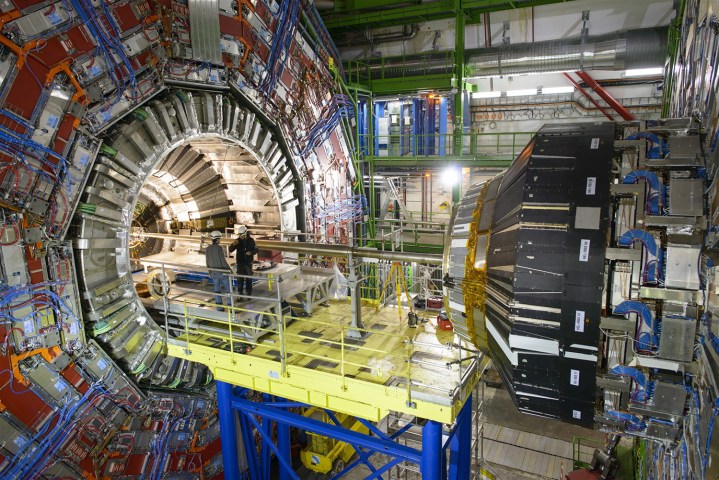The European Organization for Nuclear Research, or CERN, wants to build an enormous new super collider to smash atoms together at tremendous speeds to learn more about the mysteries of particle physics.
CERN is famous for building the Large Hadron Collider (LHC) between 1998 and 2008, a particle accelerator located in an oval-shaped tunnel 17 miles long beneath the ground near the border between France and Switzerland. The LHC is currently the most powerful particle accelerator in the world, and was used to achieve milestones in particle physics including measuring properties of the elusive Higgs boson.
The Higgs boson was a particle first theorized in the 1960s to explain why objects have mass. However, it took 50 years of research and work until the LHC found evidence for the existence of this particle in 2012.

Now, CERN wants a new tool for investigating particle physics, and has approved a plan to build a successor to the LHC that would be even larger. Costing at least €21 billion, or $23.5 billion, the new collider would sit in a tunnel 62 miles long and would be used for further research into the Higgs boson as well as research into topics like the nature of dark matter.
This approval is just the first step in the process of getting the concept developed and funded, so it is not yet certain whether the new collider will end up being built. The plan has already attracted some criticism, even from within the physics research community, for being so expensive at a time when funding for more pressing scientific matters such as virus and vaccine research is needed.
However, large-scale scientific projects are often the only way to make discoveries and push forward scientific knowledge on the extreme cutting edge of areas such as particle physics research. CERN also points out that such research has real societal impact, and that, “Advances in accelerators, detectors, and computing have a significant impact on areas like medical and biomedical technologies, aerospace applications, cultural heritage, artificial intelligence, energy, big data, and robotics.”
There will now be a feasibility study to look at the practicalities of building another collider, with results from this study expected by 2027. Then CERN will make a decision about the potential future of the new collider concept.



